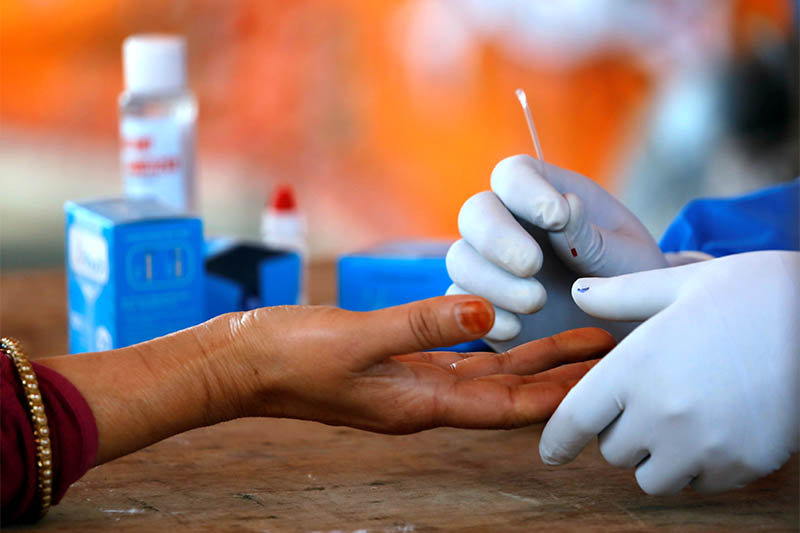Government urged to adopt reliable testing method
Kathmandu, April 25
Increase in the number of COVID-19 cases in Udayapur district and other places of the country necessitates that the government maintain more vigilance against the infectious disease and opt for reliable testing method, says the National Human Right Commission.
It warned that the increasing cases of COVID-19 despite the lockdown imposed by the government was worrisome and urged the government to expand the coverage of testing. “We draw its attention to the very little testing of COVID-19 in some places amid the increasing number of infected people. Though the rate of RDT testing is higher than PCR, the former is not reliable as per other countries’ experience. Only PCR testing method can confirm whether a person is infected with the virus. Therefore, we request the government to speed up PCR testing and contract tracing,” read a press release issued by the rights body.
Citing the report of its monitoring committees, the NHRC also said that the lockdown was not fully observed even as social distancing was the main basis for prevention of COVID-19. According to the rights body, a huge number of people stranded in various parts of the country, including Kathmandu valley due to the lockdown continue to head home without necessary precaution against COVID-19. Busy local markets in the various districts of the Tarai, negligence towards mandatory social distancing and crowding at food stores have put people at risk of contracting the disease.
The NHRC appealed to all to follow and cause to follow the lockdown besides maintaining social distance. It has also urged the government to make arrangements for adequate ventilators, isolation wards, PPE, essential drugs in the days to come ‘as the situation of the pandemic is getting worse with each passing day’.
“We urge the federal, provincial and local governments to maintain coordination to protect and promote human rights of citizens; distribute relief package to the needy and marginalised people; pay special attention to the problems of differently-abled persons, pregnant women, senior citizens, children, detainees and prisoners, squatters and the extremely poor; prevent incidents of gender-based violence and implement the interim order of the Supreme Court of Nepal with regard to citizens living in the quarantine at the international borders,” read the release.
A version of this article appears in e-paper on April 26, 2020 of The Himalayan Times.






